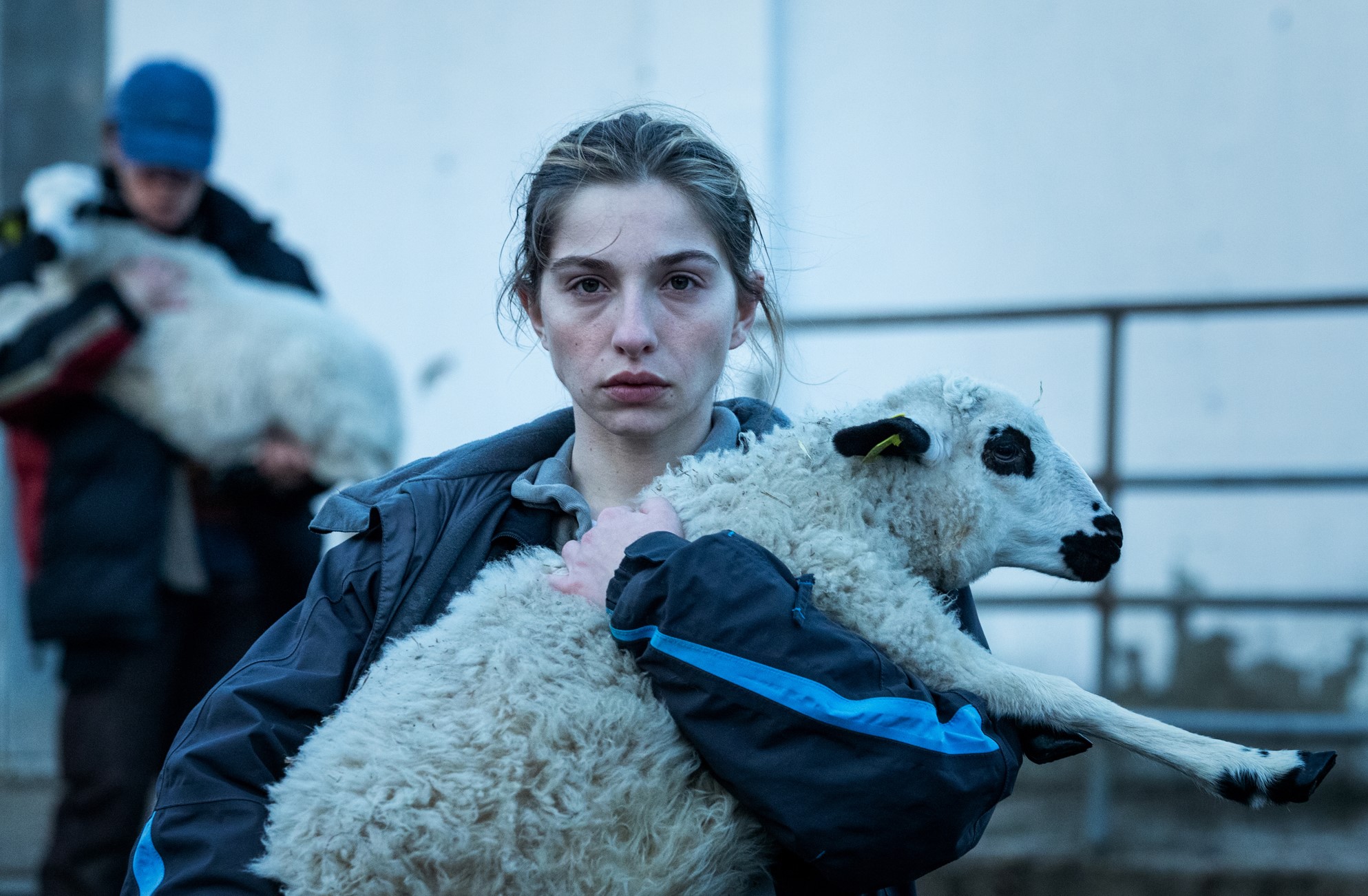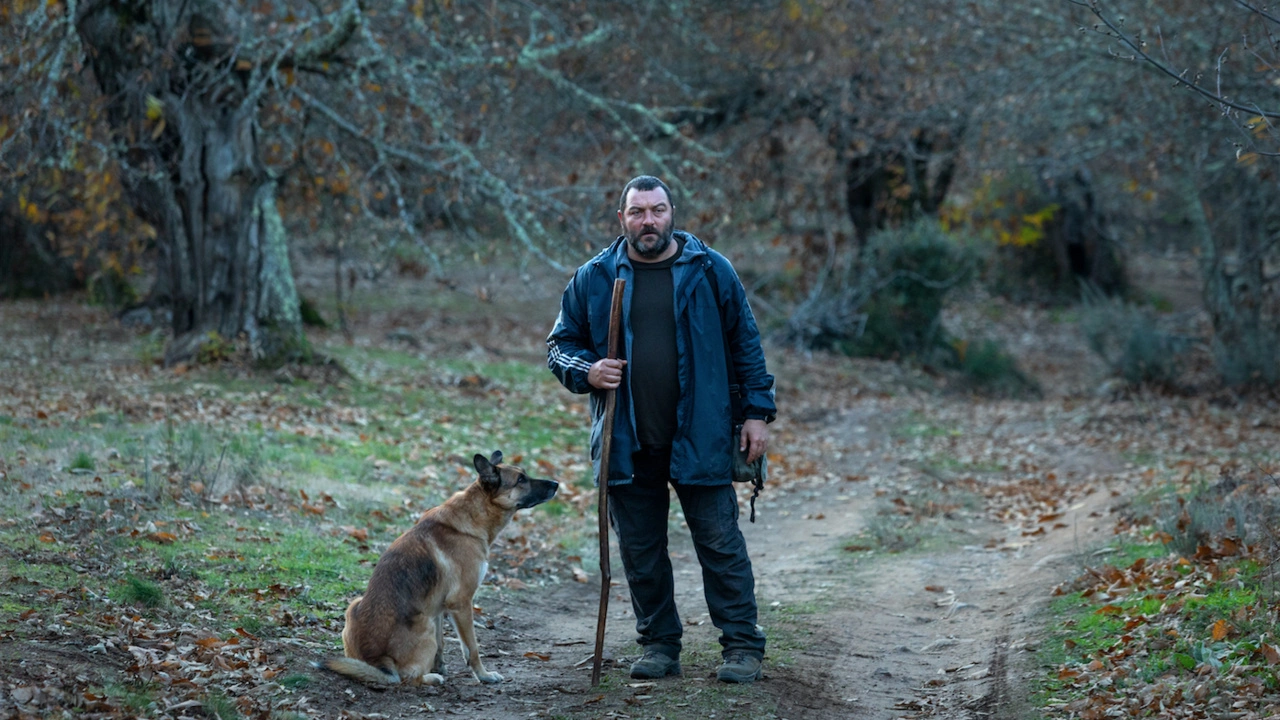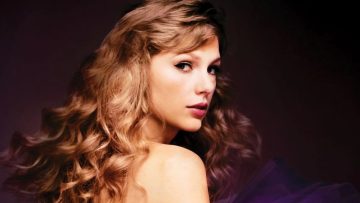★★★★☆
Connor Lightbody reviews Rodrigo Sorogoyen’s new thriller, The Beasts, a masterful exercise in building tension.
In 2010, Dutchman Martin Verfondern disappeared from a rustic Spanish village in Ourense. His disappearance and the subsequent revelations became an infamous tale among Spaniards, dubbed The Crime Of Santoalla.
Having been the focus of 2016’s true-crime documentary Santoalla, the story of Verfondern came to the attention of director Rodrigo Sorogoyen who would take loose inspiration from it to craft The Beasts. This tightly taut psychological thriller explores classism and the xenophobic experiences endured by expatriates.
A broad-shouldered man looms in a broken doorway at Galicia, Spain, his intimidating stature blocking the sun from pouring into a dilapidated house. This is Antoine (an excellent Denis Ménochet), a gentle French man who has changed his life trajectory. Antoine came from a busy French city with his wife Olga (Marina Foïs), knowing very little Spanish. He wants a simpler, rural lifestyle, farming organic tomatoes and restoring old houses to help repopulate the area in which he once had a drunken epiphany.

Credit: Curzon
However, this does not bode well with the locals, who find Antoine’s methods both perplexing and symptomatic of a world they can’t be a part of. They are also unhappy with Antoine’s ability to vote in a local referendum on adding wind turbines. The village residents believe Antoine and Olga, who have lived there for years, shouldn’t be allowed to vote. Sorogoyen uses this as a reference point for the bigotry surrounding the equal rights of migrants.
For the obstreperous residents, the turbines are a capitalistic chance to break out of the mundane, lonely lifestyles that even “the whores don’t want nothing to do with”. Antoine’s resistance to the turbines comes from wanting to protect the countryside that he wants people to return to. Conflict arises when Antoine’s neighbours Xan (an intimidating Luis Zahera, who plays the character as fiercely feral) and dim-witted Lorenzo (Diego Anido) go from petty squabbles with Antoine into a zenith of violent actions that have life-altering consequences for everyone involved.
When Antoine gets increasingly paranoid about the two brothers, he begins filming them on a little portable camera, just as Verfondern did, exacerbating tensions between them. Sorogoyen touches on the encroaching modernity that Luddite lifestyles are resilient to. However, this allegory loses clarity since the capitalist investors and the nine voting residents want the turbines as clean energy. It’s a conflicting element that Antoine, as an eco-friendly ex-teacher with a degree, seems to disregard in favour of arguing that the money for letting these gargantuan beasts, which are indicative of the life he left, isn’t enough.
Sorogoyen follows the true story a little too closely, and the film ultimately hits an intensity apex. This then tapers off as The Beasts evolve into a story of resolve in the face of intolerance rather than choosing to examine what befalls Antoine. The film may have benefited from allowing for more of the creative liberties it already takes, helping preserve all that agonising, nail-biting tension.
Even so, the third act maintains at least some of the fevered perfervid that the first two have, thanks to the muted, panic-stricken faces of Olga and daughter Marie (Marie Denis) as they face Xan and Lorenzo, whom they believe were involved in Antoine’s disappearance.
The Beasts turns into a completely different ‘beast’ by the end, one that perhaps doesn’t quite collate together smoothly enough. Yet, Sorogoyen’s sharp direction and a foreboding, percussive score from Olivier Arson – one that helps evoke the terror that helped this story become so infamous – lead The Beasts to be a gnarly, barbarous thriller that keeps its audiences’ nerves in a perpetual state of fervour.
The Beasts is in cinemas on 24 March and is also available on Curzon Home Cinema.





